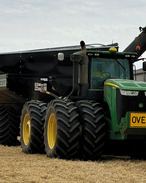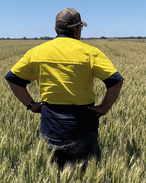This article is 7 years old. Images might not display.
The most effective path forward from this position is to try and close what’s called the “empathy gap”. Empathy is not the same as sympathy. Empathy is the ability to experience the feelings of another person. To understand things from their point of view. It goes beyond sympathy. Also, feeling empathy towards another person does not necessarily mean that you agree with their point of view. You do, however, gain a greater insight into why they feel the way they do.
To achieve this, it’s important that a family conference is organised with only the immediate participants present who are affected by the disagreement. This is probably not the time for all stakeholders to be around the table. Now for the critical factor – the discussion must focus on understanding each other’s needs as opposed to wants. This distinction is vital.
“Needs” are what people require to feel fulfilled, they allow us to function as complete human beings and are basic to our well-being.
“Wants” are more akin to desires and demands. When there is a serious disagreement, an expression of wants creates barriers and distance.
For example, “I want to own this farm until the day I die!” is a statement that offers no room to move. The message is resolute and there is to be no negotiation without a corresponding explanation. The listener has no rationalisation as to why the person feels the way they do; other than perhaps they are just stubborn and want to be hurtful.
Consider the difference if there is an expression of need; “I need to have a sense of identity and purpose and this is very much tied to the ownership of the farm”.
In this scenario the listener begins to understand why the parent finds it so difficult to pass on the farm. What about the other party? They could simply say “I want ownership of my own farm and I’ve waited long enough!” What reaction could we expect to such a demand? Let’s try the needs-based approach. “I now have my own family and we need a sense of clarity and certainty”.
By expressing to each other the personal needs that underpin your requirements you will create a greater chance for compromise. In this example there could be a number of ways that the parent could retain their sense of identity while providing the certainty required by the next generation.
Discussions that incorporate these elements can be very powerful. I have witnessed many circumstances where parties who may have been warring for a long time can still end the session with hugs and joyful tears. They find the positive part of each other they knew existed, but until this point were unable to connect or understand each other’s point of view.
This all sounds wonderful, so why is it so hard to achieve? Often people have difficulty expressing their feelings to themselves, so how can they do it to others? The capacity to express your personal needs can be influenced by past experiences, your upbringing, personality, age and many other factors.
Many farmers, particularly the older generation, have spent much of their working life in relative solitude when compared to say, an office worker. They often keep their feelings to themselves. To express their needs leaves them feeling exposed and vulnerable. They feel their guard will be dropped and they can expect to be knocked out of the ring. Once conversation reaches this level there can be a propensity to shut down it down with communication blockers such as “there’s no need to talk about this rubbish”.
This is where a professional facilitator can help. They can be firm – allowing people to say their piece and encouraging others to open up.
Interestingly, the ability to empathise with another person can vary according to age and gender. In three studies that included over 75,000 American adults aged 18 to 90, it was found the youngest and the oldest adults had the lowest empathy, while middle-aged adults had the highest empathy. Women also had higher empathy than men. Overall, the most empathetic people were women in their late 50s and early 60s. This is why, in many cases it is the mother who initiates the discussion and keeps things on track. She can play an important role in getting family members to explain their deeper feelings and emotions.
These discussions can be very challenging. It is important, however, to persevere. Don’t abandon the meeting because emotions get high. It is often part of the process. Have the courage to keep going until a positive milestone is reached.
To keep the meeting on track, lay down a few rules beforehand. Focus on explaining needs and feelings.
Do not lay blame, go over past histories or injustices. Look to the future with a new understanding of each other and a forward path that addresses those critical personal needs that are essential to a future without hurt and pain.
Contact:
James Benson
Next Rural Executive Director
1800 708 495






















